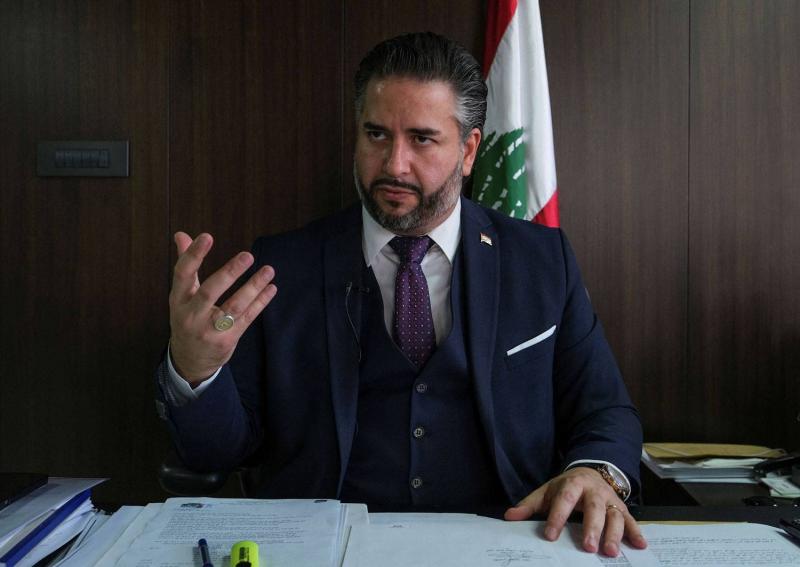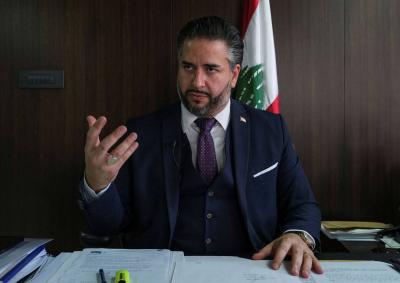Minister of Economy in the caretaker government, Amin Salam, confirmed that "institutional work is the only way to uplift the country, and if the executive and legislative authorities, along with economic bodies and councils, do not meet regularly to come up with useful conclusions for the country, especially in the current situation, they are not doing their job."
Regarding pricing in dollars, he stated, "I am among those most affected by unstudied decisions, and although I am part of the government, I rebel against the executive authority on this issue. I have always stated that the Ministry of Economy should be fully aware of everything that is studied, discussed, or approved in the economic sector, whether in the private or public sector, which has not happened until today. I have been calling for this since the formation of this government, but unfortunately, the non-institutional way of working is what has led us to our current situation."
He continued, "The decision to adopt the dollar as a price index for imported goods sold in the country has uncovered the national currency's weaknesses and will mitigate inflation. Therefore, there is no possibility for dollarization, and we are not to blame for the national currency's decline; we received it already weakened, and in light of the rapid rise of the dollar's price, how can we continue?"
Salam affirmed that "this decision is exceptional, studied with the Parliamentary Committee on Economy and Trade and with economic experts, and it aims to protect consumers without affecting wages, especially those still in lira. This solution aids in monitoring amid a shortage of inspectors." He regarded that "pricing in dollars is easier to monitor and reduces confusion for consumers while limiting theft and price manipulation."
While emphasizing that "this solution is a temporary and exceptional measure to alleviate the living crisis at this stage," he stressed that "fundamental solutions will only occur through reforms, the approval of a recovery plan, activating constitutional institutions, and reopening banks to restore economic balance."
Salam's statements came during a dialogue meeting on "Dollar Pricing in Retail and Consumer Goods: Pros and Cons." The meeting included the Minister Salam, President of the Economic and Social Council Charles Arabid, Head of the Economy and Trade Committee MP Fares Boustani, MP Mark Douaihy, Vice President of the Economic Council Saad al-Din Hamidi Saqr, General Director of the Ministry of Economy Mohammed Abu Haydar, President of the General Labor Union Dr. Beshara Asmar, Vice President of the Chamber of Commerce and Industry and Head of the Supermarket Owners Association Dr. Nabil Fahd, President of the Road Transport Union Bassam Tleiss, Vice President of the Association of Industrialists Ziad Bakdash, Head of the Food Importers Association Hani Bahsali, President of the Lebanese Women’s Council for Leaders Madiha Ruslan, and members of the Economic Council.
After the meeting, Arabid pointed out that "the session addressed two main topics: first, the issue of pricing in dollars and its implications; and second, the increase of the customs dollar to 45,000." He spoke about the difficult social reality in Lebanon, referencing a suicide that occurred the previous day due to hardship, considering "this a sign of the economic, social, and living pressures facing the Lebanese people," emphasizing that "social concern is paramount," and stressing the need for "our community to remain cohesive with a minimum level of dignity," expressing sorrow that this has "been lost today."
He called for addressing the social situation, linking it to wages and the necessity of their correction and all the services that should be provided by the lost caring state, affirming "the Economic Council's primary concern is social rather than economic." He viewed that "we cannot address the social situation without resolving the economic situation, which in turn cannot be addressed without stopping the political conflict. Under the current political crisis, we will not be able to correct matters or address any problem."
Arabid reiterated the call for “dialogue, convergence, and moderation,” seeing it as a responsibility of all political forces in Lebanon. He requested that officials "not make hasty decisions and thoroughly study each decision made," noting that "there is no study of the impact of any decision on the social and economic situation," stating that "this mechanism is lacking in the executive authority in Lebanon."
He noted that "we cannot raise the customs dollar without addressing and combating smuggling," stressing the need to "control smuggling and regulate the payment system to organize work."
For his part, MP Boustani said, "Despite the delicate political situation, the Ministry is the executive authority, and it is working in complete cooperation with the legislative authority to improve the situation for consumers and citizens."
He wished that the media would be accurate in the subject being discussed today, which is the food index, emphasizing the importance of not distorting reality, as "reality is an index, and neither the minister nor I have ever said that Lebanese products should be priced in dollars. The noble goal of the Parliament or the Ministry should not be disrupted, as it harms citizens."
Boustani added, "Secondly, we are not taking a showy or populist approach. We do not need populism; instead, we are starting from a social and humanitarian standpoint, so I hope that everyone in this critical period will commit to ideal patriotism. Cheers to the whole team of the Ministry of Economy and the parliamentary committee for their cooperation, and we will continue our work."




